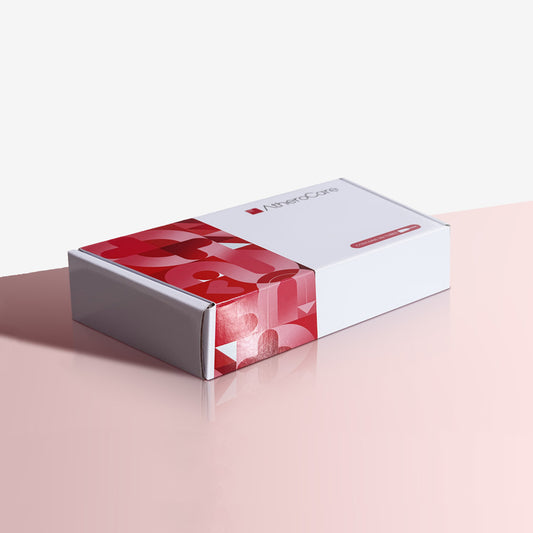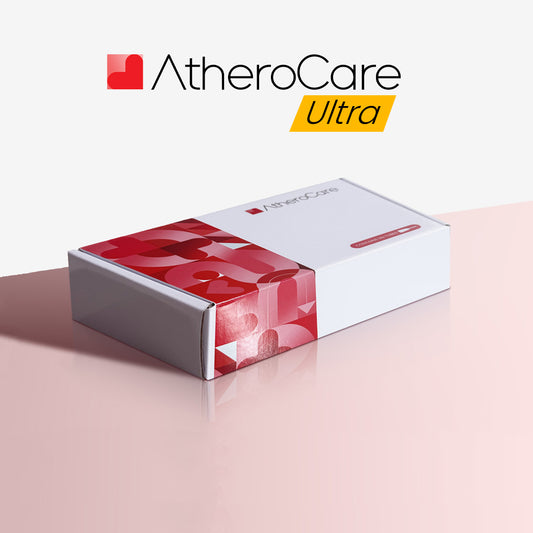Arterial Inflammation and Its Role in Atherosclerosis
Atherosclerosis is not just a cholesterol problem; it is also an inflammatory disease. When cholesterol and fats accumulate on artery walls, the immune system perceives them as harmful substances and triggers an inflammatory response. This leads to:
- Activation of white blood cells, which attempt to clear cholesterol deposits but contribute to plaque growth.
- Production of inflammatory molecules, such as cytokines and reactive oxygen species, which damage arterial walls.
- Hardening and narrowing of arteries, restricting blood flow and increasing cardiovascular risks.
Over time, this inflammation causes plaques to become unstable, making them more likely to rupture and cause life-threatening events such as heart attacks or strokes.
How Cyclodextrin Helps Reduce Arterial Inflammation
Cyclodextrin is a cyclic molecule that has been shown to dissolve cholesterol crystals, a key driver of arterial inflammation. By targeting these cholesterol deposits, cyclodextrin helps reduce the inflammatory response and supports overall heart health. Here’s how:
1. Dissolving Cholesterol Crystals to Reduce Immune Activation
Cholesterol crystals act as irritants that trigger immune cells, leading to prolonged inflammation in the arteries. Cyclodextrin binds to these cholesterol molecules and solubilizes them, preventing them from activating inflammatory pathways. This directly lowers inflammation and reduces the risk of plaque progression.
2. Lowering the Production of Inflammatory Cytokines
Inflammatory cytokines such as interleukin-1β (IL-1β) and tumor necrosis factor-alpha (TNF-α) contribute to arterial damage and plaque instability. Research suggests that by breaking down cholesterol deposits, cyclodextrin may help reduce the release of these inflammatory mediators, leading to a healthier arterial environment.
3. Preventing Further Plaque Formation
Inflammation not only worsens existing plaques but also promotes the formation of new deposits. Cyclodextrin’s ability to remove cholesterol from plaques may reduce the accumulation of new fatty deposits, slowing the progression of atherosclerosis and decreasing overall arterial inflammation.
4. Improving Arterial Flexibility and Blood Flow
Chronic inflammation contributes to arterial stiffness, making it harder for blood to circulate efficiently. By reducing cholesterol-related inflammation, cyclodextrin helps restore arterial flexibility, improving circulation and reducing strain on the heart.
Scientific Studies on Cyclodextrin and Inflammation Reduction
Recent research has highlighted the anti-inflammatory benefits of cyclodextrin in cardiovascular health:
- Cellular Research: Laboratory studies show that cyclodextrin can block inflammatory pathways triggered by cholesterol crystals, preventing further immune activation.
- Human Benefits: While more clinical studies are needed, preliminary findings suggest that cyclodextrin play a role in reducing inflammation-related cardiovascular risks in humans.
The Broader Benefits of Reducing Arterial Inflammation
By lowering arterial inflammation, cyclodextrin may help:
- Reduce the risk of heart attacks and strokes by stabilizing plaques.
- Lower overall cardiovascular disease progression by preventing further arterial damage.
- Enhance the effectiveness of other heart health treatments, such as statins and blood pressure medications.
- Improve long-term arterial health by reducing stiffness and promoting better circulation.
Conclusion: Cyclodextrin as a Promising Tool for Inflammation Control
Traditional heart health treatments focus on cholesterol reduction, but addressing inflammation is just as important in preventing cardiovascular disease. Cyclodextrin’s unique ability to dissolve cholesterol crystals and reduce inflammatory responses makes it a promising tool for those looking to maintain healthier arteries and lower their risk of heart-related complications.
As research continues, cyclodextrin could become an essential part of cardiovascular care, offering new hope for individuals seeking a non-invasive solution to arterial inflammation and atherosclerosis management.







